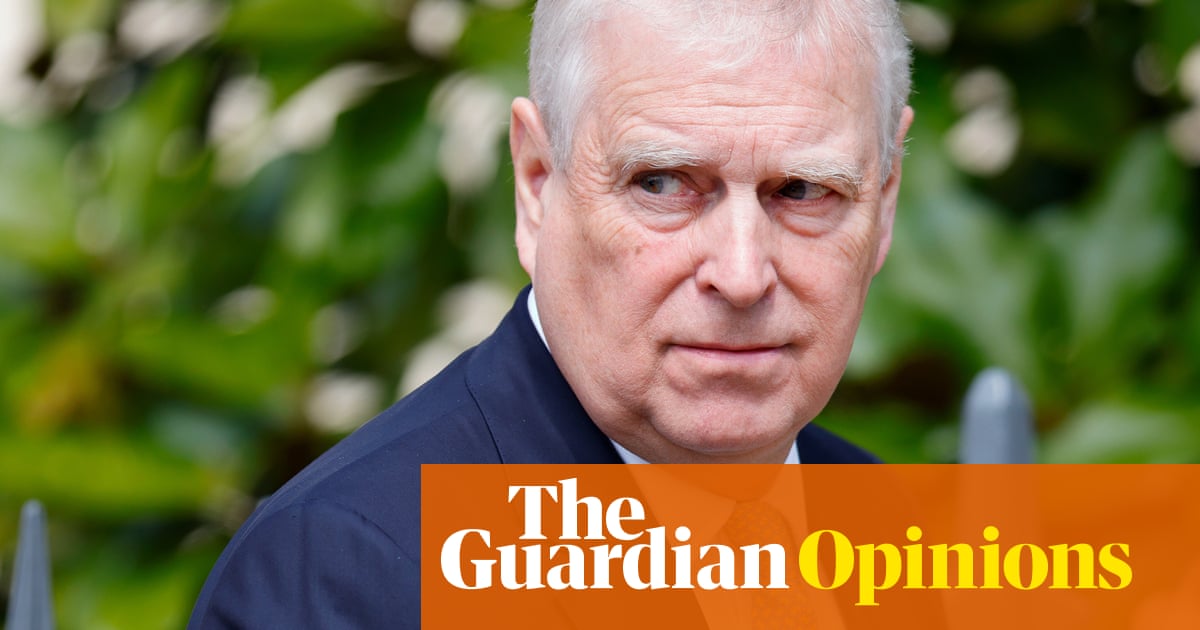Everyone talks about Prince Andrew’s “fall from grace” but that raises an awkward question. When exactly was his grace period? Admittedly, even the most cynical among us aren’t immune to royal wedding fever, and when he married Fergie the nation was still high on the fumes from Charles and Diana’s nuptials, so perhaps he was briefly popular in 1986. But other than that? Pretty confident recollections wouldn’t vary here. Nada.
So technically we can’t call the events that have transpired since that brief moment in the sun a fall from grace. It’s more accurate to classify them as many falls from “meh”.
With that in mind, it is genuinely baffling that there are still any conversations at all about Andrew returning to royal life, especially when many think Harry should be locked in a tower just for daring to pursue an alternative future. Yet the discussion has somehow rumbled on. Now, with the death of Virginia Giuffre, it must stop for good.
When Giuffre alleged that she had been sexually assaulted by Andrew on three occasions when she was 17, he promised to fight to clear his name in court. His lawyer described her accusation as “baseless” and claimed she was seeking a “payday”.
Andrew went on to settle out of courtin the US civil case for an estimated $12m, while making no admission of guilt. His lawyer declined to comment. David Boies, representing Giuffre, said of the settlement: “I believe the event speaks for itself.”
The teenager had been recruited to Jeffrey Epstein’s sex trafficking ring by Ghislaine Maxwell in 2000 while working as a locker-room attendant at President Trump’s Mar-a-Lago resort in Palm Beach.Giuffre told the Miami Herald: “Before you know it, I’m being lent out to politicians and academics and royalty.” In a later interview with the BBC, she chillingly described being“passed around like a platter of fruit”.
Last weekend, her family announced thatshe had “lost her life to suicide, after being a lifelong victim of sexual abuse and sex trafficking. In the end, the toll of the abuse is so heavy that it became unbearable for Virginia to handle its weight.”
With a few jaw-dropping exceptions, when it comes to royal scandals we don’t usually hear from the royal at the centre of the storm: never complain, never explain, and all that. But, unfortunately, thanks to his infamous Newsnight interview, we’re under no illusions about the precise level of remorse Andrew feels for his involvement with Jeffrey Epstein, which continued after Epstein was convicted and sentenced to eighteen months in prison in 2008, for procuring a minor for prostitution. Remember, as Andrew said in that interview, the only thing he’s guilty of is a “tendency to be too honourable”.
The mea non culpa also showcased Andrew’s superpowers: a staggering degree of tone-deafness and complete illiteracy when it comes to reading rooms. As producerSam McAlister revealed in the aftermath: “As the interview ended, and I looked at the floor, unable to comprehend what we’d just witnessed, it became clear that Prince Andrew actually thought it had gone well. Very well … Those historic photos of him and Emily [Maitlis] walking in the palace corridors that you saw? Taken after that terrible interview took place … You can see how well he thought it had gone.”
It’s the same story every time he pops back up, cold sore-style and just as welcome. From when he bowled down the aisle with the late Queen, unselfconsciously centre stage, at Prince Philip’s memorial in 2022, to most recently at a public appearance at an Easter church service in Windsor. (His first since the furore over his links with businessman Yang Tengbo,accused of being a Chinese spy.)
Whenever we see Andrew, his expression is that of a dog who’s not bothering to beg for a treat because he’s so certain it’s coming his way. “Ugh, haven’t I waited long enough?” drips from every pore. Sorry,woulddrip from every pore, if only that were medically possible.
Never being allowed back to royal duties, into the spotlight he so clearly relishes, means he will spend the rest of his days languishing in the lap of luxury. As punishments go, it’s hardly harsh. But there is a sting in the tail. It’s highly likely Andrew will be for ever denied the public approval he still seems to feel he is entitled to and deserves. It’s not a life sentence as most of us understand it, and it’s certainly nowhere close to the one Virginia Giuffre endured, but at least it’s not nothing.
Polly Hudson is a freelance writer
Do you have an opinion on the issues raised in this article? If you would like to submit a response of up to 300 words by email to be considered for publication in ourletterssection, pleaseclick here.
